
- Mega Menu
-
Bản đồ

Lãnh thổ - bộ tộc
Quốc gia thời Phật +Vương quốc Kosala +
Vương quốc Magadha +
Sakya +
Koliya (Câu-lợi) +
Nước Kasi +
Nước Bạt-kỳ (Vajji) +
Nước Avantī +
Xứ Kurū +
Cộng hoà Malla +
Vương quốc Vatsa +
Nước Ālavī +
Nước Pañcāla +
Tích Lan (Lanka - Sri Lanka)
- Cuộc đời Đức Phật
- Hình ảnh
Thông tin từ Wiki.Tamhoc.Org
Hiện 1 số chức năng vẫn đang được xây dựng
Giới thiệu về Wiki Tâm Học .org
- 01/18/2026 05:37:45- 3770 Lượt xem
Trung A Hàm 167. Kinh A-nan Thuyết
- 01/18/2026 05:37:45- 1012 Lượt xem
Tóm tắt kinh Hạnh Phúc (Mangala Sutta, Sb 2.4, Khp 5)
- 01/18/2026 05:37:45- 991 Lượt xem
MN 26: Ariya Pariyesanā Suttaṃ
- 01/18/2026 05:37:45- 771 Lượt xem
Cuộc đời Đức Phật Thích Ca TC007A01 : C - Siddhattha học văn
- 01/18/2026 05:37:45- 770 Lượt xem
All caught up!There are no system errors!Choose Language
Popular Languages
Others
Sách liên quan

 Nikaya Tâm HọcTrang chuyên về Cuộc đời Đức Phật
Nikaya Tâm HọcTrang chuyên về Cuộc đời Đức Phật- Activity
-
Chat
8
- Recover Password
- My Account
-
Settings
New
-
Messages
512
- Logs
Nikaya Tâm họcVP People ManagerLayout Options
-
Fixed HeaderMakes the header top fixed, always visible!
-
Fixed SidebarMakes the sidebar left fixed, always visible!
-
Fixed FooterMakes the app footer bottom fixed, always visible!
-
Chế độ xemChế độ xem toàn màn hình
-
Kiểu hiển thị bài viếtBài viết sẽ được sắp xếp dưới dạng
-
Số lượng bài viếtSố bài viết được phân trong 1 trang
Header Options-
Choose Color Scheme
Sidebar Options-
Choose Color Scheme
Main Content Options-
Page Section Tabs
-
Light Color Schemes

- Menu
- Dashboards
- Đức Phật Gotama
- Kinh Tạng Nikaya
- Kinh tạng Nikaya
- Kinh trung bộ
- Kinh trường bộ
- Kinh Tương Ưng Bộ
- Kinh Tăng chi Bộ
-
Kinh Tiểu bộ
- Kinh Tiểu bộ
- Kinh Tiểu tụng
- Kinh Pháp cú
- Kinh Phật thuyết như vậy
- Kinh Phật tự thuyết
- Chuyện thiên cung và ngã quỷ
- Kinh tập
- Trưởng lão tăng kệ
- Trưởng lão ni kệ
- Tiền thân Đức Phật Gotama
- Nghĩa Thích, Niddesa
- Phân Tích Đạo (Vô Ngại Giải Đạo)
- Thánh Nhân Ký Sự (Thí Dụ)
- Phật Sử, Buddhavamsa
- Hạnh Tạng, Cariya Pitaka
- Hướng Dẫn Chú Giải Tam Tạng
- Phần Tìm Hiểu Tam Tạng (Petakopadesa)
- Mi-lin-đa Vấn Đạo (Milindapanha)
- Checkout
- Phần nghiên cứu
- Trung A Hàm
- Trường A Hàm
- Tăng Nhất A Hàm
- Tạp A Hàm
- Nghiên cứu
-
Kinh A Hàm
Đối chiếu và so sánh
Luật tạng
- Thời Phật tại thế
- Nhân và phi nhân
- Thư viện
- Tham khảo
ĐPS T6B.002 Chapter 45 THE LIfE STORIES Of MALE LAY DISCIPLES(I shall describe the story of the brothers, Tapussa and Bhallika, based on the Commentary on the Aṅguttara Nikǎya and the Commentary on the Theragǎthǎ, the Ekaka nipǎta.) he future Tapussa and future Bhallika were reborn into a worthy family in the city of HaÑsǎvatī, during the time of Buddha Padumuttara. When they were listening to a discourse by the Buddha, they saw two disciples being named as the foremost in being the first of the Buddha's disciples who were established in the Three Refuges. The two brothers aspired to that distinction and after making an extraordinary offering to the Buddha, they wished for that goal. (Aṅguttara Commentary)Tìm kiếm nhanh - Cuộc đời Đức Phật
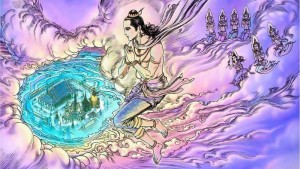 Mốc I : Hoàn cảnh trước khi Phật ra đời
Mốc I : Hoàn cảnh trước khi Phật ra đời
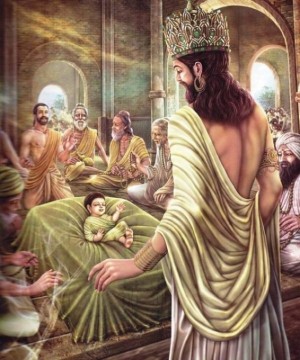 Mốc II : Sự kiện Phật đản sanh
Mốc II : Sự kiện Phật đản sanh
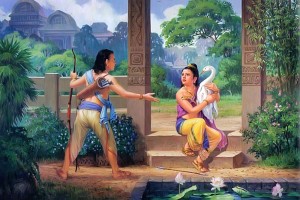 Mốc III: Giai đoạn tuổi thơ của Bồ tát Tất Đạt Đa
Mốc III: Giai đoạn tuổi thơ của Bồ tát Tất Đạt Đa
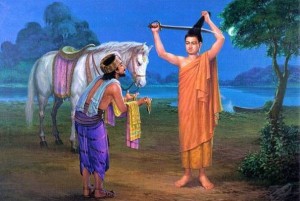 Mốc IV : Giai đoạn trưởng thành - xuất gia
Mốc IV : Giai đoạn trưởng thành - xuất gia
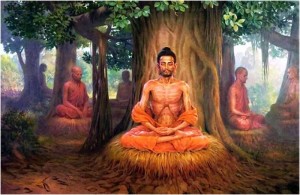 Mốc V : Tầm đạo
Mốc V : Tầm đạo
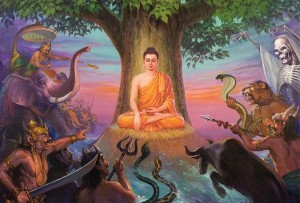 Mốc VI : Thành đạo
Mốc VI : Thành đạo
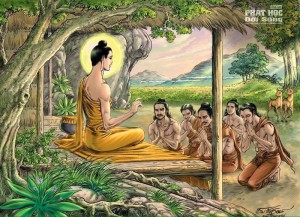 Mốc VII: Những vị đệ tử đầu tiên
Mốc VII: Những vị đệ tử đầu tiên
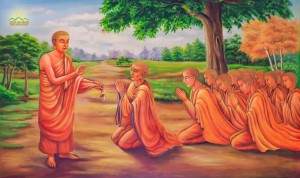 Mốc VIII : Tăng đoàn lớn mạnh
Mốc VIII : Tăng đoàn lớn mạnh
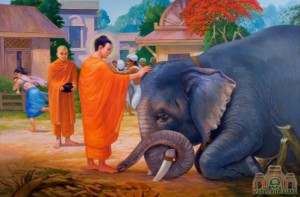 Mốc IX: Mười ba năm cuối cuộc đời Đức Phật
Mốc IX: Mười ba năm cuối cuộc đời Đức Phật
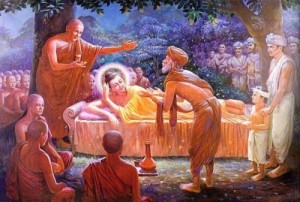 Mốc X : Đức Phật nhập niết bàn
Mốc X : Đức Phật nhập niết bàn